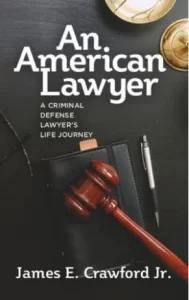Don’t Let Your Child Face Cyberbullying Charges Alone
When does teasing turn into cyberbullying? When can the words of one child legally cause the actions of another?
Maryland cyberbullying cases are an incredibly grey area of case law, with strict punishments if someone is found guilty, even a minor.
JC Law can help show the nuance of a seemingly open-and-shut case against your child, protecting them from years in jail and your family from thousands in fines.
What Does Maryland Law Define as “Cyberbullying?”
In 2012, a high school student named Grace McComas committed suicide after a neighbor cyberbullied her.
One year later, in 2013, Maryland’s “Misuse of Interactive Computer Service” law—“Grace’s Law”—was officially signed into law.
Per Grace’s Law, Maryland defines a cyberbully as someone who uses an “interactive computer service” to maliciously and intentionally cause “serious emotional distress on a minor” that can lead them to either harm themselves or reasonably fear harm from others.
An update in 2019 expanded Grace’s Law against cyberbullying to include intimidation and harassment of a minor via “electronic communications,” particularly if the person intends to hurt the target or cause the target to commit suicide.
Does Cyberbullying Only Involve Minors? Or, Can It Be Adults Bullying Each Other Online?
Per Maryland law, cyberbullying is a crime specifically committed against a minor; it would not cover those victims at or above the legal age of majority (18 years old).
However, Maryland law does protect all of its citizens from various forms of harassment, including those by electronic means. Adults charged with cyberbullying other adults can face criminal charges for:
- Harassment
- Stalking
- Misuse of electronic mail
Is Cyberbullying Handled by the School or by Maryland Law Enforcement?
The Maryland State Board of Education has a universal school safety policy in place at all its schools, which requires all students to have educational environments that are “safe, supportive of academic achievement, and free from any form of harassment,” including cyberbullying.
Many schools choose to discipline off-campus behavior between students, particularly if those actions leak into the classroom or are caught by a teacher.
In addition, many school officials are considered “mandated reporters.”
Per Maryland state law, if they see something that indicates a child is suffering from “abuse or neglect,” they must report it to their local Department of Social Services or tell the local law enforcement agency about their suspicions.
If the police consider the report credible, they may investigate and press charges against the minor defendant.
The school would have no say in whether official criminal charges would be filed against the individual. Officials would also not influence the police investigation beyond cooperating when asked.
What Are Possible Legal Consequences for Cyberbullying?
The original Maryland restrictions on cyberbullying—passed in 2013—made it a misdemeanor crime with up to a year in prison and a $500 maximum fine.
The update to Grace’s Law, passed in 2019, upped the potential penalties substantially. Those convicted of cyberbullying under the new statute can receive up to 3 years in prison and a fine of up to $10,000.
Adults convicted of cyberbullying-related crimes face equally tough sentences.
- Harassment is a misdemeanor crime with a fine of up to $500 and up to 90 days in jail for the first offense, doubling the possible sentence for repeat offenders.
- Stalking is also a misdemeanor, but the sentence can be up to five years in jail and a fine of up to $5,000.
- Misuse of electronic mail is a misdemeanor, too, with up to one year in jail and a fine of up to $500.
How Can a Defense Lawyer Help with Cyberbullying Accusations?
Even if you don’t think your child has cyberbullied the alleged victim, don’t expect their “innocence” to free them of potential charges.
Law enforcement investigators are looking to corroborate the victim’s story, for the most part, leaving your family at a disadvantage if you don’t have a criminal defense lawyer with experience in juvenile cases.
The alleged victim can also “feel” as though the actions were “malicious” or otherwise intended to hurt them and pursue charges based on those beliefs.
A criminal defense lawyer can prove to a court that the defendant did not intend for the statements to come off that way, and no reasonable person would consider them possibly threatening or harmful.
A lawyer can also pursue a case in which the speech in question wasn’t bullying, but rather constitutionally protected “free speech” as a legitimate expression of opinion (if offensive) and not a credibly threatening communication.
There are other defenses that can be pursued, too—but those depend on the exact situation of each individual client. You can tell a lawyer about your child’s charges during a free initial consultation, and we’ll be able to give you an initial game plan for how we’d keep your child safe and sound.
“I really enjoyed my experience in this extremely stressful situation. Everyone is friendly and very knowledgeable of each process. I am very happy with my experience.”
